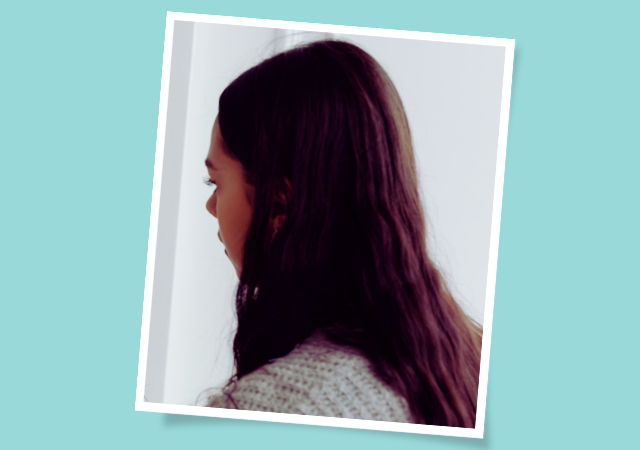Can Rubbing Lemon on Scalp Help Eliminate Dandruff?
Introduction
Dandruff is a persistent and sometimes embarrassing scalp condition that affects a significant portion of the population. Characterized by the unsightly white flakes that can dot our clothing and cause itching, it’s a problem that many seek to address. While there are numerous over-the-counter shampoos and treatments available, the world of natural remedies has been gaining attention as well. One such remedy that has garnered interest is the use of lemon.
But does this kitchen staple truly have the power to eliminate dandruff, or is it just another home remedy with limited effectiveness? In this article, we will explore the science behind using lemon for dandruff, discuss how to use it safely, and examine user experiences and expert opinions to help you make an informed decision about this natural approach.
The Science Behind Lemon and Dandruff

Lemons are packed with various compounds that make them a potentially intriguing solution for dandruff. Let’s delve into the science behind lemon and how it may impact this common scalp condition.
Citric Acid: The Key Player
One of the primary components of lemon juice is citric acid. Citric acid is a weak organic acid with natural antimicrobial properties. It’s these antimicrobial properties that have led some to believe that lemon can help combat dandruff.
Dandruff is often caused by the overgrowth of a yeast-like fungus called Malassezia. This fungus thrives on the oils produced by our scalp, leading to irritation and flaking. The idea is that citric acid, due to its antimicrobial nature, can help control the population of Malassezia on the scalp, thus reducing dandruff.
However, it’s important to note that the effectiveness of citric acid against Malassezia may vary from person to person. Furthermore, lemon juice isn’t just citric acid; it also contains other compounds and can be diluted when applied to the scalp, potentially reducing its potency.
Antioxidants and Scalp Health
Lemons are also rich in antioxidants, particularly vitamin C. Antioxidants play a crucial role in protecting our skin and scalp from oxidative stress caused by free radicals. This oxidative stress can contribute to skin inflammation and other scalp conditions.
While the antioxidants in lemon may not directly target the root cause of dandruff (Malassezia overgrowth), they could help alleviate some of the associated symptoms like itching and irritation. Additionally, a healthier scalp environment may be less conducive to dandruff development.
Potential Limitations and Risks

While lemon’s citric acid and antioxidants offer potential benefits, it’s important to consider some limitations and risks:
- Scalp Sensitivity: Lemon juice is acidic, and for some individuals, this acidity can cause skin irritation and burning sensations. If you have a sensitive scalp or any open wounds or cuts, lemon juice may exacerbate discomfort.
- Dryness: Excessive use of lemon juice on the scalp can lead to dryness. This can be counterproductive, as dry scalp can also contribute to dandruff.
- Hair Color: Lemon juice has natural bleaching properties. If you have colored hair, using lemon on your scalp may lead to discoloration or fading.
- Uneven Results: The effectiveness of lemon juice can vary widely from person to person. What works for one individual may not work for another.
- Risk of Allergic Reaction: Some people may be allergic to citrus fruits, including lemons. If you have a known citrus allergy, avoid using lemon on your scalp.
How to Use Lemon for Dandruff Treatment

If you decide to give lemon a try for dandruff treatment, it’s essential to do it safely and effectively. Here’s a step-by-step guide on how to use lemon on your scalp:
- Preparation: Squeeze fresh lemon juice from a ripe lemon. It’s best to use organic lemons to avoid any chemical residues.
- Dilution: Lemon juice is highly acidic, so it’s essential to dilute it with water. A common ratio is one part lemon juice to two or three parts water. This dilution helps reduce the risk of scalp irritation.
- Application: Using a cotton ball or a spray bottle, apply the diluted lemon juice directly to your scalp. Make sure your hair is dry before applying. It’s essential to focus on the areas where you have dandruff or itching.
- Massage: Gently massage the lemon juice mixture into your scalp using your fingertips. Be cautious not to scratch or irritate your scalp further.
- Leave On: Allow the lemon juice to sit on your scalp for about 5-10 minutes. Avoid prolonged exposure, as it can lead to excessive dryness.
- Rinse Thoroughly: After the waiting period, rinse your hair and scalp thoroughly with lukewarm water. Make sure to remove all traces of lemon juice to prevent dryness.
- Shampoo: You can follow up with a mild, moisturizing shampoo. This helps remove any residual lemon juice and ensures your hair and scalp are clean.
- Moisturize: After washing your hair, consider applying a gentle, hydrating conditioner or a natural moisturizer to prevent excessive dryness.
Lemon vs. Commercial Dandruff Treatments

To assess the effectiveness of lemon as a dandruff treatment, it’s valuable to compare it to traditional over-the-counter dandruff shampoos and treatments:
Pros of Lemon:
- Natural and chemical-free option.
- Potentially cost-effective.
- May provide relief from itching and irritation.
- Easily available in most households.
Cons of Lemon:
- Variable results.
- Risk of scalp sensitivity and dryness.
- May not target the root cause of dandruff in all cases.
- Not as rigorously tested as commercial treatments.
Pros of Commercial Dandruff Treatments:
- Typically designed to target the root causes of dandruff.
- Rigorously tested for safety and efficacy.
- Wide range of options for different dandruff types.
- Convenient and easy to use.
Cons of Commercial Dandruff Treatments:
- May contain chemicals that some individuals prefer to avoid.
- Can be more expensive than natural remedies.
- May take time to find the right product that works for your specific dandruff type.
The choice between lemon and commercial treatments ultimately depends on your personal preferences, skin sensitivity, and the severity of your dandruff. Some people find success with natural remedies like lemon, while others may require the targeted action of commercial products.
Success Stories and User Experiences
To gain further insights into the effectiveness of lemon for dandruff, let’s take a look at some real-life success stories and user experiences:
Case 1: Mahek’s Success with Lemon
Mahek, a 30-year-old woman, had been struggling with dandruff for years. She decided to try lemon juice after reading about its potential benefits online. She diluted fresh lemon juice, applied it to her scalp once a week, and noticed a significant reduction in dandruff flakes and itching within a few weeks. Mahek was pleased with the results and continued using lemon as part of her scalp care routine.
Case 2: Virat’s Disappointment
On the other hand, Virat, a 25-year-old man, attempted to use lemon juice for his dandruff but experienced intense scalp irritation and burning. His condition worsened, and he had to discontinue using lemon immediately. Virat’s experience underscores the importance of considering individual skin sensitivity when using natural remedies.
Expert Opinion: Dr. Emily White
Dr. Emily White, a dermatologist, suggests that lemon can be a useful adjunct treatment for some individuals with mild dandruff. However, she emphasizes the importance of patch testing to check for skin sensitivity before using lemon on the scalp. Dr. White also recommends consulting a healthcare professional if dandruff persists or worsens.
These cases highlight the variability in outcomes when using lemon for dandruff. While some individuals may find relief, others may experience adverse reactions.
Potential Side Effects and Precautions

Before deciding to use lemon on your scalp for dandruff treatment, consider the potential side effects and take necessary precautions:
- Scalp Sensitivity: Perform a patch test by applying diluted lemon juice to a small area of your scalp and monitoring for any adverse reactions, such as redness, itching, or burning.
- Avoid Open Wounds: Do not use lemon juice on your scalp if you have any open wounds, cuts, or sores, as it can cause intense stinging and irritation.
- Rinse Promptly: Ensure that you rinse the lemon juice thoroughly from your scalp to prevent excessive dryness or irritation.
- Sun Exposure: Lemon juice can make your skin more sensitive to sunlight. If you use lemon during the day, take precautions to protect your scalp from the sun’s harmful rays.
- Hair Color: If you have colored hair, be cautious when using lemon, as it may lighten or alter the color.
- Hydration: Counteract potential dryness by moisturizing your scalp and hair after using lemon.
Other Natural Remedies for Dandruff

While lemon is one natural remedy for dandruff, it’s not the only option available. Here are some other natural remedies that people have tried for dandruff:
- Tea Tree Oil: Tea tree oil has antimicrobial properties and may help reduce dandruff symptoms. Dilute a few drops in a carrier oil and apply it to your scalp.
- Aloe Vera: Aloe vera gel has soothing and moisturizing properties that can alleviate scalp irritation. Apply it directly to the affected areas.
- Coconut Oil: Coconut oil is known for its moisturizing properties. Massage warmed coconut oil into your scalp and leave it on for a few hours before washing.
- Apple Cider Vinegar: Apple cider vinegar has natural acids that can help balance the pH of your scalp. Mix it with water and use it as a rinse after shampooing.
- Baking Soda: Baking soda can be used as a gentle exfoliant to remove dandruff flakes. Mix it with water to form a paste and massage it into your scalp before shampooing.
It’s essential to remember that natural remedies may work differently for each person. What works for one individual may not work for another, so it may take some experimentation to find the right solution for your specific dandruff type.
Conclusion
Dandruff can be a persistent and bothersome scalp condition, but it’s not without solutions. Lemon, with its citric acid and antioxidant properties, presents a natural and accessible option for some individuals seeking relief. However, its effectiveness can vary, and it may not be suitable for everyone.
Before using lemon or any natural remedy on your scalp, it’s crucial to consider your skin’s sensitivity, perform a patch test, and be aware of potential side effects. Additionally, consulting a healthcare professional for persistent or severe dandruff is advisable.
While lemon may be a helpful part of your dandruff care routine, it’s not a one-size-fits-all solution. It’s just one tool in the arsenal of options available to address this common scalp condition. By staying informed and considering your individual needs, you can make the best choice for healthier, dandruff-free hair and scalp.

My name is Rohit Vagh and I’m a content writer specializing in fashion and lifestyle. I have three years of experience in this field and have written various articles. My writing style is creative and engaging, and I strive to create content that resonates with my readers. I have a deep passion for fashion and am constantly researching the latest trends and styles to make sure my readers are up to date. I’m excited to continue my career in blogging, and I’m always looking for new opportunities in the fashion and lifestyle space.





